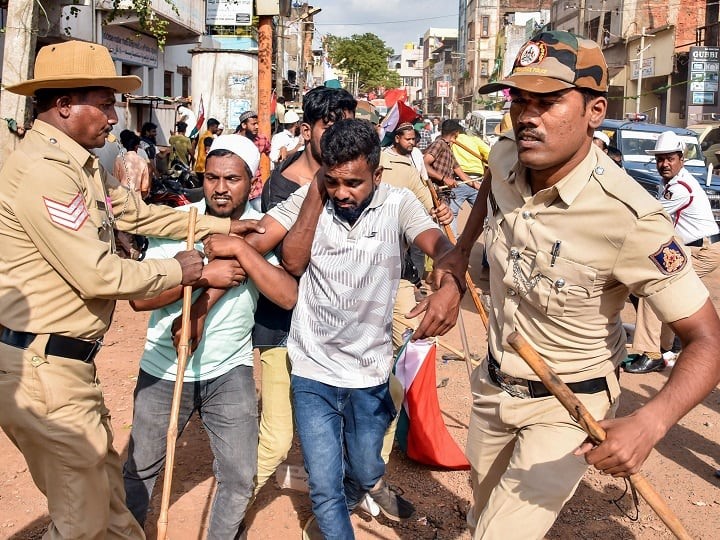
Centre may ban PFI; mulls legal options, says report

The Union home ministry might add the radical Islamist Popular Front of India (PFI) to the list of already 42 banned terrorist organisations in the country, according to a news report in a national daily. The process to ban the organisation, meanwhile, has started in Karnataka, said state Home Minister Araga Jnanendra.
This comes in the wake of the arrest of over 100 leaders and activists of the PFI, after the National Investigation Agency (NIA) conducted raids to crack down on the organisation, in 15 states across the country on September 22. However, another media report said that the NIA is currently collecting and examining evidence, seeking legal opinion about the ban and gathering witnesses before going in for the ban. The agency reportedly does not want to act without concrete and direct evidences that will not hold up in court.
According to the report in Hindustan Times, however, after the preliminary interrogation of 106 PFI suspects, which included chairman OMA Salam, enforcement and intelligence agencies are planning to recommend banning the so-called “neo-social movement” under section 35 of the Unlawful Activities (Prevention) Act, 1967.
Whipping up hostility between religions
The NIA has accused the PFI and its affiliates of conspiring to stir up hostility between different religions and groups, disrupting public tranquillity and causing hatred against India. Further, the NIA charged with using violence and justifying it, instigating vulnerable youth to join banned terror outfits such as al-Qaeda and conspiring to establish Islamic rule in India by 2047.
According to NIA, PFI is the India recruiter for global jihadist groups including al Qaeda, Pakistan-based Jaish-e-Muhammad and Lashkar-e-Toiba. These terror outfits are benefiting from the prevailing insecurity among Muslims in the country which is being caused by right-wing groups and Hindutva aggression and fuelled by majoritarian politics.
Also read: Nationwide PFI raids and arrests: What NIA says in its report
Outcome of NIA investigations
Preliminary investigations have revealed the accused have used various social media platforms for their secret communications. The central agency had sought judicial remand to forensically analyse the digital devices seized during raids to unearth the larger conspiracy. The enforcement and intelligence agencies have also found that the PFI-SDPI network was planning to target top leaders of the BJP and the RSS.
Ban as a disruptor of terror activities
Quoting officials in the know of the developments, the HT report further said that the PFI ban under UAPA may not wipe out the organisation in India but act as a massive disruptor of their pro-terror setup.
The PFI, in fact, has been gearing up for the raids and a ban for the past past two years. This is probably one of the reasons enforcement agencies have not been able to recover a huge cache of illegal cash or arms and ammunition.
Also watch: 106 PFI cadre arrested following NIA raids across 11 states
According to a 2020 report by the home ministry, the PFI received funding from countries like UAE, Saudi Arabia, Bahrain, Qatar and Oman. They operate from countries like UAE under frontal outfits like the Rehab Foundation, the Indian Social Forum, and Indian Fraternity Forum. They are active in spreading Islamic fundamentalism and raise funds in these countries to be sent to India, the dossier added.
The Indian Fraternity Forum in Bahrain, UAE, Kuwait and Saudi Arabia is also involved in raising funds for it, the dossier said.
Another news report, however, pointed out that banning PFI will require legal support and evidences against the organisation, cadre and leaders. For now, the NIA will focus on seizures and ground-level network, while the ED picks up the funding trail. The investigations are going to help them get to the lower level cadre who actually mobilise people.


